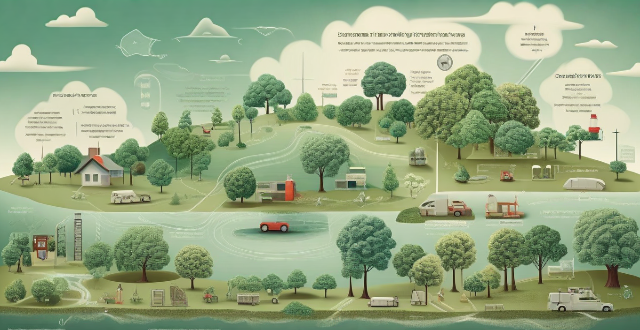Movement Loss

How has the #MeToo movement impacted women's rights globally ?
The #MeToo movement has significantly influenced women's rights globally by encouraging survivors to share their experiences and creating a culture of support. This has led to increased reporting and accountability for perpetrators, as well as heightened awareness about the prevalence and severity of sexual harassment and assault. Many countries have also implemented laws and policies in response to the movement, such as stricter penalties for perpetrators and protections for survivors. However, there are still challenges and limitations to its effectiveness, including the reluctance of some survivors to share their stories publicly and the underreporting and underprosecution of other forms of gender-based violence. Overall, the #MeToo movement has had a significant impact on advancing women's rights, but more work is needed to ensure full progress.

How has the #MeToo movement influenced corporate culture and policies towards women ?
The #MeToo movement has had a profound impact on corporate culture and policies towards women. It has brought attention to the prevalence of sexual harassment and assault in the workplace, leading to increased awareness and action to address these issues. This movement has also influenced companies to adopt more inclusive and supportive policies for their female employees. One of the most significant impacts is the increased awareness and education about sexual harassment and assault in the workplace. Companies have recognized the need to educate their employees about what constitutes inappropriate behavior and how to report it. Many organizations have implemented mandatory training programs for all employees, including managers and executives, to ensure that everyone understands the company's policies and procedures regarding sexual harassment. The #MeToo movement has also led to changes in corporate culture, particularly in terms of creating a more inclusive and supportive environment for women. Companies are now placing a greater emphasis on diversity and inclusion initiatives, recognizing that a diverse workforce is not only ethical but also beneficial for business success. This includes implementing policies that promote equal pay, opportunities for advancement, and flexible work arrangements to accommodate the needs of working parents. Another key area where the #MeToo movement has influenced corporate culture is in improving reporting mechanisms for incidents of sexual harassment or assault. Companies are now taking steps to ensure that their employees feel comfortable coming forward with concerns and that they will be taken seriously. This includes establishing anonymous reporting channels, providing resources for support and counseling, and ensuring that investigations are conducted thoroughly and impartially. Many companies have adopted zero-tolerance policies towards sexual harassment and assault in response to the #MeToo movement. These policies clearly outline the consequences of engaging in such behavior, which can include termination of employment. By enforcing strict penalties for misconduct, companies aim to create a workplace culture where employees feel safe and respected. The #MeToo movement has also highlighted the importance of supporting victims of sexual harassment or assault. Companies are now offering more comprehensive resources for employees who have experienced such incidents, including access to counseling services, legal assistance, and job protection while they recover from the trauma. This support helps victims feel heard and validated, encouraging them to come forward and seek help when needed. In conclusion, the #MeToo movement has had a significant influence on corporate culture and policies towards women by increasing awareness and education about sexual harassment, promoting inclusivity and support, improving reporting mechanisms, adopting zero-tolerance policies, and providing support for victims. These changes demonstrate a commitment by companies to create a safer and more equitable workplace for all employees.

Can organic food help with weight loss ?
Organic food may aid weight loss by reducing exposure to harmful chemicals, offering higher nutrient content, having lower calorie density, and improving digestion. Incorporating organic options slowly, choosing locally grown produce, reading labels carefully, planning meals, and including protein sources can support a healthy eating plan conducive to weight loss.

Can fitness trackers help me achieve my weight loss goals ?
Fitness trackers can support weight loss by tracking steps, heart rate, sleep, and calories. They provide motivation, accountability, and data for decision making. However, they have limitations such as overreliance on technology and accuracy concerns. It's important to use them wisely and in conjunction with other healthy habits for effective weight loss.

Can strength training help with weight loss ?
Strength training, involving the use of resistance to induce muscular contraction and build strength, can significantly contribute to weight loss by increasing metabolic rate, boosting post-exercise oxygen consumption (EPOC), improving body composition, and enhancing appetite control. Incorporating strength training into your routine, starting slowly and focusing on compound movements while staying consistent, can help achieve weight loss goals.

Can yoga help with weight loss ?
Yoga can be a valuable addition to a weight loss program due to its ability to improve muscle tone, increase flexibility, reduce stress levels, and promote mindful eating habits. Incorporating yoga into your routine along with other forms of exercise and healthy lifestyle habits can help you achieve your weight loss goals and improve overall health and well-being.

What are the long-term consequences of climate loss and damage ?
The article discusses the long-term consequences of climate loss and damage, including rising sea levels, extreme weather events, loss of biodiversity, impact on agriculture, disruption of industries, costs of mitigation and adaptation, health risks, displacement and migration, and impact on culture and heritage. It highlights the need for a global effort to reduce greenhouse gas emissions and adapt to the changing climate in order to create a more sustainable future.

How do climate change and biodiversity loss intersect ?
Climate change and biodiversity loss are interconnected issues that impact each other significantly. Climate change can lead to habitat loss, altered migration patterns, and changes in prey-predator relationships, all of which can result in reduced populations or even extinction for some species. On the other hand, biodiversity loss can reduce carbon sequestration, compromise soil health and water regulation, and impair ecosystem services that help mitigate climate change. Urgent action is needed from all stakeholders to address these challenges and protect our planet's fragile ecosystems.

Does lifting weights help with weight loss ?
Weight loss is a common goal for many people, and weightlifting is one of the most popular methods. However, does lifting weights help with weight loss? This article explores the benefits and drawbacks of weightlifting as a means of weight loss. One of the main benefits of weightlifting is muscle growth, which can lead to an increase in metabolism and help with weight loss. In addition, weightlifting can also help with fat burning and improved cardiovascular health. However, there are also some potential drawbacks to weightlifting, including high initial costs, potential injuries, and a significant time commitment. If you are interested in trying weightlifting as a way to lose weight, make sure you do your research and find a program that fits your needs and lifestyle.

Can eating a healthy diet help with weight loss ?
Eating a healthy diet is crucial for weight loss and overall health. A balanced meal plan can increase satiety, improve nutrient intake, reduce cravings, and enhance digestion. To create a healthy meal plan, focus on whole foods, control portion sizes, choose healthy fats, stay hydrated, and plan ahead. By following these tips, you can achieve your weight loss goals while nourishing your body with essential nutrients.

Do immigration policies influence language preservation or loss within communities ?
Immigration policies can significantly affect language preservation and loss in communities by changing demographics, shaping language education, community support, and intergenerational transmission. Open policies may increase diversity, while restrictive ones can lead to language loss.

How does climate loss and damage affect vulnerable communities ?
The text discusses the impact of climate loss and damage on vulnerable communities. It highlights that these impacts are multifaceted and can be categorized into various sectors including health, agriculture, infrastructure, and social stability. The health impact includes direct and indirect risks from extreme weather events and disruptions to food and water security. The agricultural impact involves crop failures due to changes in precipitation and temperature patterns, leading to loss of livelihoods and increased food prices. Soil degradation also reduces land productivity. Infrastructure damage includes coastal erosion and inland flooding, causing property loss, disruption of services, and repair costs. Social stability is affected by displacement due to environmental changes and economic strain from adapting to climate change. The conclusion emphasizes that addressing these challenges requires global cooperation and targeted support to build resilience and protect those most at risk.